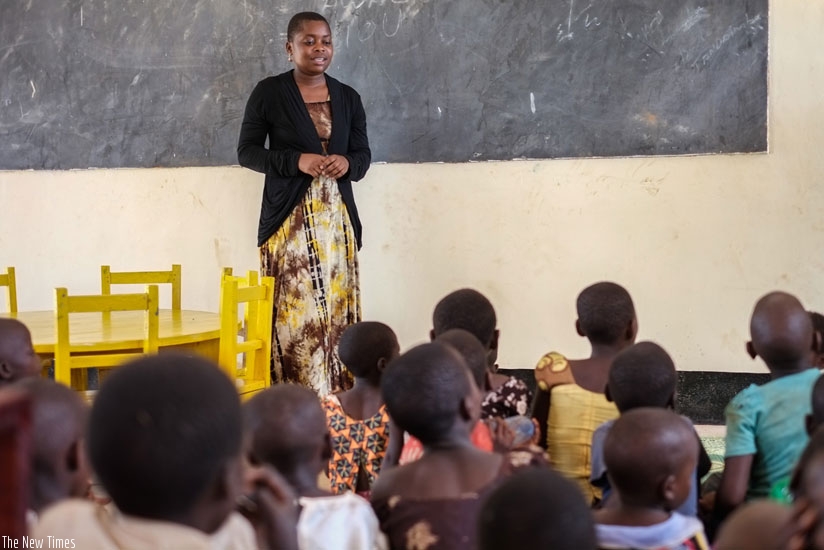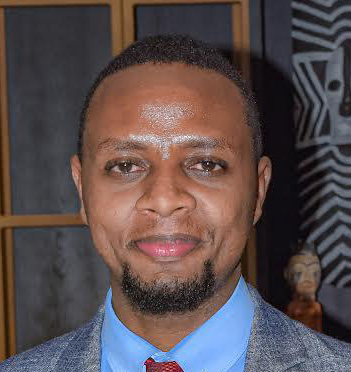It is a commonly held notion that anyone can teach. Whereas this may hold some iota of truth, not everyone can be a ‘teacher’. A teacher, unlike other professionals, acts as a craftsman, strategist and a powerful role model. For this reason, the environs of a classroom are enlivened by the inspiring, dynamic, enthusiastic, encouraging, skilful and dedicated approach of the teacher.


It is a commonly held notion that anyone can teach. Whereas this may hold some iota of truth, not everyone can be a ‘teacher’. A teacher, unlike other professionals, acts as a craftsman, strategist and a powerful role model. For this reason, the environs of a classroom are enlivened by the inspiring, dynamic, enthusiastic, encouraging, skilful and dedicated approach of the teacher. It is the teacher who shapes the destiny of students and that of the future citizens who eventually shape the destiny of the country. Such a teacher only can successfully impart cultural values among children that strengthen the ideals of social justice, equity, secularism and pluralism.
In addition, a teacher is a lifelong learner because of his association with knowledge which keeps growing, and so opportunities have to be accorded to him/her to ensure that he keeps learning and developing throughout his professional life. This is precisely the very reason teacher trainees need pre-service education programmes.
Pre-service education programmes are the specialised trainings or education which is given to student teachers before they have undertaken any teaching.
In Rwanda, the scenario is not different. Everyone who pursues education is obliged to undertake similar courses. However, according to Dr Alphonse Uworwabayeho, a senior lecturer at the University of Rwanda’s College of Education, there are short courses designed for teachers who didn’t pursue education.
"Those who completed Senior Six are asked to do a diploma course in education, while those with a bachelor’s degree are asked to do a post-graduate diploma in education which usually takes one year. This way, we are sure that they have acquired what it takes to be a right teacher,” he says.
Fidele Muhirwa, a teacher at Groupe Scolaire Kicukiro, says in order to ensure professionalism, there is need to pursue the right courses.
"Research shows that there’s no correlation between the student’s performance and the qualification of a teacher. Studies have also shown that a person who didn’t pursue education may even teacher better than those who did. However, there are some basics that such person may need, for instance, pedagogical skills and the ways of handling students in a class. These short courses greatly help them,” he said.
Jimmy Mutabazi, a teacher at Nyagatare Secondary School, says professionalism counts a lot.
"Professionalism is fundamental when stepping in class for the first time. No matter how much you have been interacting with students, how interested they may be or even how talented you may be, adapting to the teaching environment isn’t an easy thing, especially if you got no basics of education. Although you might not need to go for four-year course, but a short one may work out for you,” Mutabazi explained.
What educationists say
Emmanuel Niyirora, who works with Teach Rwanda, says for teachers to be professionals, they need to have the fundamental knowledge and the base of having at least been exposed to a classroom setting for quite some time.
"Teachers need to understand how students learn before they start officially teaching. As Teach Rwanda, we aim at helping teachers by taking them to model schools where they are able to have access to an introductory guide for teachers and young children,” he explained. Teach Rwanda is an initiative which provides post-secondary teacher education, equips schools with creative learning materials, and nurtures future Rwandan leaders.
Niyirora explains that such education programmes assist both the teachers and students to be aware of what students want, and for students to make their own choices respectively.
"We used to go to class and we were forced to just memorise things. However, these traditional methods would result into students not knowing what and where to exactly go. Pre-service training programmes, therefore, improve the quality of education,” he added.
Professional preparation and professional development of teachers is, however, a continuous process, Niyirora says, adding that the formulation of policy and design of teacher preparation and continuing professional development should optimally take into account the whole spectrum of teacher training.
According to Bethany Ericson, the country director of Save the Children, Rwanda needs a permanent system of continuing professional development for teachers, in order to achieve improvements in areas such as literacy instruction.
"Earning a degree from a teacher training college, or university is just the beginning of the learning process needed to develop effective teachers. When teachers — even those with the correct formal qualifications enter the classroom for the first time, there is a great deal that they still need to learn about effective instruction. Though they will gain some of these skills simply through experience, they would hone their knowledge and abilities to a much greater degree through formal continuos professional development opportunities that link the study of theory to systematic changes in practice,” she says.
Top-performing countries on international testing regimes such as PISA achieve their results in part by having strong systems of continuous professional development.
"For example, in Singapore, Sweden and the Netherlands, teachers are required to log at least 100 hours of structured professional development experiences each year. Continuing professional development systems can include formal courses offered in-person or online, teacher-practitioner research, reading and reporting on recent research articles, developing portfolios of new methods and activities, and peer-to-peer collaborations such as presentations and analysis of model lessons, among many other possibilities,” she adds.


